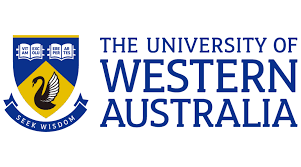University of Western Australia: Ben Aliphon awarded Geoffrey Blee Neuroscience Honours prize
A fascination with how the brain works propelled Ben Aliphon to complete an Honours degree and go on to win a top prize at The University of Western Australia.
The Geoffrey Blee Neuroscience Honours Prize is awarded to the student scoring the highest course weighted average mark in completing Honours in Neuroscience at UWA.
Ben’s project was supervised by Associate Professor Jenny Rodger, head of Brain Plasticity Research at UWA and the Perron Institute, and Associate Professor Wilhelmina (Helmy) Mulders (UWA).
His research focused on measuring cognitive affective bias, which refers to the way in which emotions can influence rational decision-making and is a key concept in understanding and treating affective disorders such as depression and anxiety.
During his Honours work, Ben developed a behavioural test for cognitive affective bias in preclinical models that can be repeated over time, addressing an important knowledge gap on how to design and apply repeatable tests needed for diagnostic accuracy and drug development.
“There is still so much we don’t know about the brain and how it works,” Ben said. “I was excited to have the opportunity to learn about innovative research and concepts.
“The award is important to me as it proved that hard work pays off. Completing a thesis is an achievement, but it’s also rewarding to have my efforts formally recognised. It has motivated me to work hard in other areas of my life.
“I’m incredibly grateful to the donors of the prize, Margaret Johnstone and the Australian Brain Foundation Rockingham Division. Having a prize allocated specifically for neuroscience students is encouraging.
“I couldn’t have asked for better support during the year. My supervisors A/Professors Rodger and Mulders are both inspiring scientists and amazing people. I’d also like to acknowledge the technical support of Marissa Penrose-Menz and Associate Professor Dominique Blache.
“Everyone I’ve met is passionate about their work, whether trying to understand consciousness or developing complicated lab experiments.
“It took me a little while to find my footing at uni, but I remembered why I chose to do neuroscience and eventually fell in love with the degree.”
Next year, Ben hopes to study medicine and eventually practise as a neurologist.
“My Honours year also made me realise I’d like to stay involved in research. I hope to complete a PhD one day, but my primary goal is to get into medical school.
“In the next few decades, I believe there will be many developments for treating neurological conditions. I would love to be on the front-line, applying the research to help treat people.”
Associate Professor Rodger has supervised a Geoffrey Blee recipient three times in the past ten years; PhD student Emily King in 2021 and Dr Alex Tang in 2012.
“I’m proud of Ben’s progress and development,” she said. “I hope other students will be inspired by his journey and what he has achieved so far.”

